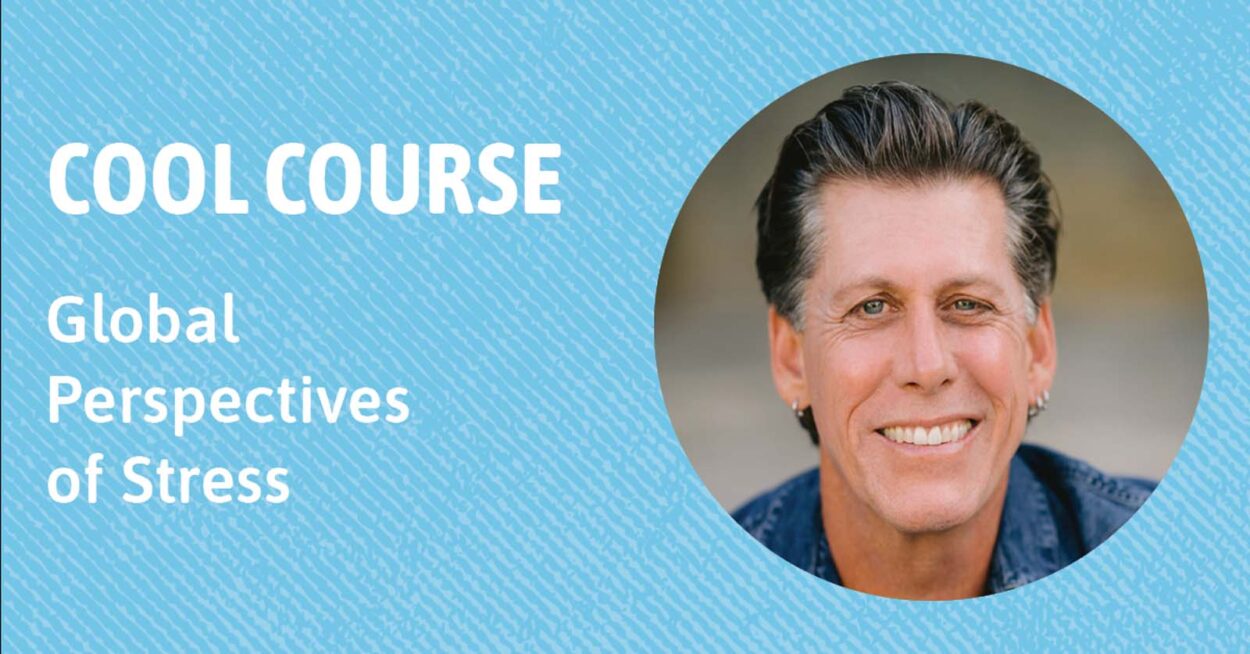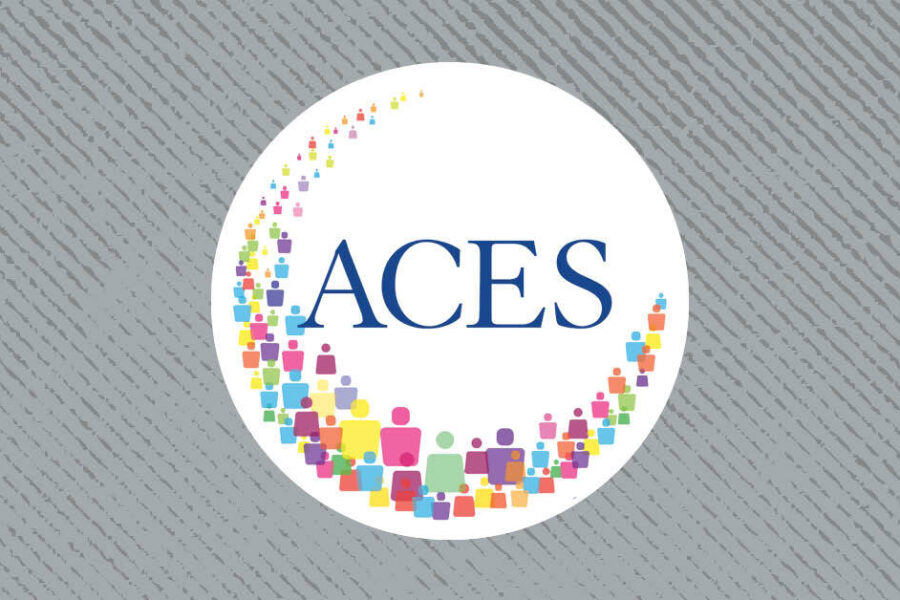Jeff Gaddess sees the prevalence of stress in our society as a product of the ways that it is arranged. “There are reasons you feel the way you feel,” he says. “We think that it’s our fault, that we’re not adapting.” But blaming oneself is not necessarily a helpful way forward. Instead, in his undergraduate course “Global Perspectives of Stress,” which he teaches in the BA in Liberal Studies program in Santa Barbara, he guides students as they explore how different cultures from around the world manifest and manage stress—ultimately aiming to find new ways to disrupt today’s cycles of stress and trauma.
This course builds on scholarly work that explores collective trauma, looking at the ways in which trauma affects us. Stress, he says, was once a biological reaction to acute danger, but it has since become chronic. At the same time, he explains, we have “created a market economy around staying traumatized. Medication, alcohol, distractions, shopping. Whatever it is.” For this reason, Gaddess encourages students to identify sources of stress and its symptoms, from the physical to the emotional—and ultimately to find ways to “manage the manifestations of stress.”
Gaddess sees these problems on a societal level and in his own life. Growing up, he watched his dad succumb to what he describes as the “stress, anxiety, and related issues” of working in the corporate world. This psychological violence, as he puts it, tragically led to his father’s premature death.
Being deeply affected by familial trauma—and desiring to make sense of it—is what led Gaddess to higher education in the first place. This was over twenty years ago, when Gaddess studied at Antioch University for BA in Psychology and then an MA in Organizational Management. This led him to get his PhD in Depth Psychology at the Pacifica Institute. Through all of these studies, Gaddess encountered ideas and building tools that he has used through the remainder of his career. Eventually, he came to realize that his narrative was not unique. “We see [narratives like mine] in anxiety, in depression, in alcoholism and drug use, suicides,” he says. “We see it everywhere.”
Now as an instructor at Antioch University, Gaddess wants to help students realize that stress is a healthy response to a dysfunctional culture. His course teaches students how to manage that stress. Students engage in the concept of transgenerational trauma and the ways that stresses gets passed down from parent to child. And, says Gaddess, the class is designed to be accessible for all students, not just those looking to move on into the mental health field.
In fact, raising awareness around trauma and stress across different sectors of society is part of Gaddess’s larger mission. He has worked extensively with unhoused people in and around Santa Barbara, and this has informed his research interests, which range from precarity in care theory to theories around trauma in contemporary culture, depth psychology, myth, and religion. Gaddess’ work outside of Antioch gives him his special perspective into issues of trauma and stress. And he sees throughout his work the importance of raising awareness and finding ways to talk through these issues that affect us all. “I have to work with city councils and private funders,” he says.
Through his work helping build infrastructure ranging from clinical assistance to homeless shelters, Gaddess has come to believe that the problem of homelessness is a symptom of contemporary society’s relationship to trauma. And it is a problem that is only growing. In 2021, the Good Samaritan Shelter, an organization that Gaddess has worked for, estimated that there were over 3,000 people experiencing homelessness in Santa Barbara and San Luis Obispo. These problems are exacerbated by a lack of adequate mental healthcare services—a problem he saw firsthand as the Residential Services Director for the Mental Wellness Center in Santa Barbara, overseeing rehabilitative and clinical services for adults with mental illnesses.
After years of work in his field, Gaddess is most proud not becoming cynical. He brings compassion into the classroom to help students understand the patterns of stress and trauma in contemporary culture. After all that he has seen from his adolescence to his adulthood, he says, “I care more now than I ever have.” This shows in the seriousness and care that he brings to his work educating the next generation of problem-solvers in this field.



